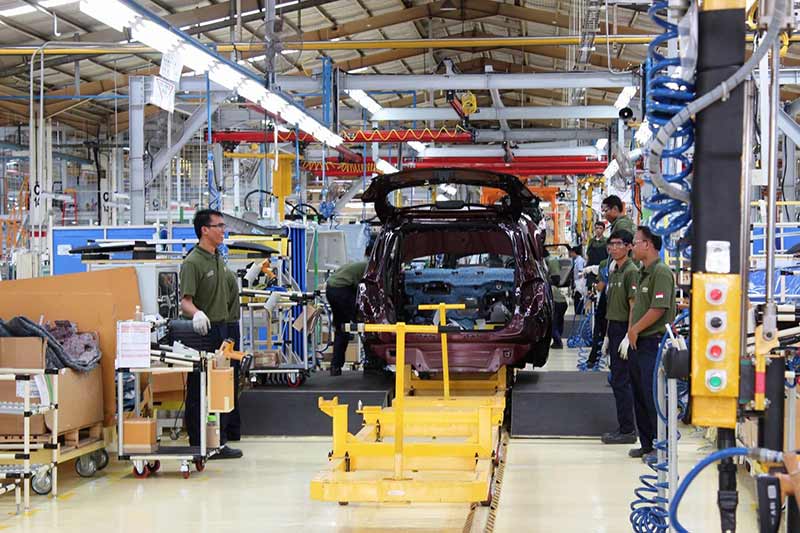With more than 24 years of SME banking under his belt, Sonny Joseph has a deep understanding and passion for helping Indonesian small and medium sized companies grow and succeed. The former banker has helped thousands of SMEs across the archipelago having visited every province in the country. Through his experience serving SME’s segment, he has a deep understanding about the needs and challenges from this segment. It has been often noted that SMEs are the backbone of the Indonesian economy, contributing 60.34% of the country’s gross domestic product (sources: Indonesian Ministry of Industry, CNN, Kompas; Team Analysis, 2016). It is estimated that there are 260,000 medium sized companies and 2.4 million small enterprises spread across the length and breath of Indonesia (source: BPS, BI; Team Analysis, 2016). Java as expected dominates in terms of geographical spread of SMEs with around 70% located in Java – Bali and several big cities i.e., Medan, Palembang, Lampung, and Makassar (sources: BI, BPS; Team Analysis, 2016). Defining an SME however can be different, it depends on various factors. According to Sonny, the definition of an SME should not only be based on turnover and asset size but more importantly how the business is run. In Indonesia SMEs are almost always family owned and managed. They may have a turnover of more than Rp. 50 billion a year but their management and bookkeeping systems are controlled by family members in a very simple manner.
TYPICALLY THERE ARE THREE CATEGORIES OF SMES:
The first category is made up of small stall-holders that operate mostly in traditional markets. Most of these enterprises are still run by the founders/owners as their children are not really interested in continuing the business and prefer to work in other fields. The majority of such companies have limited access to capital, lack of succession plan and thus can only grow marginally.


Sonny Joseph
The second category of SMEs are those that are part of the supply chain or the ecosystem of the existing large corporations. These enterprises are more professional which means the quality of the goods and services they deliver are quite good following the standard of the large corporates they served, so that the continuity of the enterprise is more secure. Such companies also have greater access to capital as they are able to pledge invoices or purchase orders as collateral for credit. The third category of SMEs are those that are independent and ready to move to the next level. These companies have an annual turnover of more than Rp. 50 billion and employ modern accounting and IT systems. They are still managed by family members but some professionals might also be hired to run the day-to-day business.
CHALLENGES
Despite their critical role in the economy, many SMEs face an uphill battle to survive and grow.According to Sonny, based on the research conducted together with a reputable consultant company a couple of years ago, only 69% of SMEs in Indonesia have access to credit lines in banks while the remaining 31% either self-fund or borrow from family, friends, and other sources. The average loan size for SME is Rp. 1.2 billion with total loans amounting to Rp. 660 trillion. SME credit is growing at about 5% annually, according to Sonny. “When I started developing a SME banking business in a medium-sized bank in 2013, the total loan size was about Rp. 535 trillion so the number has increased,” he noted. “But there is a lot more room for growth and even among the 69% of SMEs that have credit in banks, many are still underserved. This is where alternate financial institutions can play a pivotal role in helping SMEs to grow and succeed. Sonny who has established a new technology-based finance company (registration number from regulatory is in progress) firm notes that many SMEs are still wish for loans as their business is growing fast and also time is a major consideration.
“Our main focus is productive entrepreneurs who competently run their business in a simple manner with sales turnover up to Rp. 50 billion per annum, are trustworthy, reputable and passionate about their business,” he notes. He adds that its not just capital that SMEs need. Often times, they are also need capacity development. This is what sets Sonny apart as he is ready to go the extra mile to help SMEs. “We focus on opportunities to grow by providing capital and capacity for growth,” he says. “It’s not just about giving out loans. We have to be passionate about changing people’s lives and helping SMEs to grow sustainably.” For SMEs in Indonesia, financial technology firms offer alternate financing options without the need to pledge collateral and approval can be obtained quickly. The benefits of the digital economy for SMEs are enormous ranging from increase in sales to gaining access to global consumers through Facebook and Instagram. If SMEs grow and succeed, the impact on the economy and society as a whole is substantial. Hundred thousand of new jobs can be created while innovation can lead to better quality of life for all citizens.


